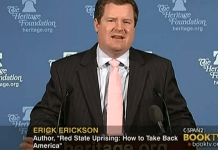World leaders are set to convene with Ukraine’s President Volodymyr Zelenskiy this weekend at a summit aimed at finding solutions to Europe’s deadliest conflict since World War Two. However, Russia has not been invited, and Kyiv’s goal of isolating Moscow appears unlikely to be achieved.
The summit, scheduled for June 15-16 at the Swiss resort of Buergenstock, will be attended by prominent figures including U.S. Vice President Kamala Harris, French President Emmanuel Macron, and leaders from Germany, Italy, Britain, Canada, and Japan. Notably absent will be China, which plays a critical role as a major consumer of Russian oil and a supplier of goods that bolster Moscow’s industrial base. Turkey and Hungary, also maintaining amicable relations with Russia, will send their foreign ministers.
President Zelenskiy, while acknowledging the difficulty of garnering international support amid the prolonged conflict, described the summit as already achieving a significant outcome. He emphasized the challenge of uniting both partner and non-partner countries, especially as the conflict enters its third year.
In preparation for the summit, Zelenskiy traveled to Saudi Arabia to discuss arrangements with Crown Prince Mohammed bin Salman. However, it remains uncertain whether Saudi Arabia will send a representative.
The summit has drawn varied reactions from experts. Ulrich Schmid, a political scientist specializing in Eastern Europe at the University of St. Gallen, characterized it as a mixed bag due to support from certain quarters juxtaposed with China’s absence. He questioned the feasibility of achieving peace while Russian President Vladimir Putin remains in power, highlighting the entrenched nature of the conflict.
Russia has dismissed the summit, labeling it futile, as it was not invited despite its significant military presence in Ukraine since February 24, 2022. Moscow frames its actions as part of a broader confrontation with the West, countering allegations of illegal conquest by Kyiv and Western nations.
The concept of the summit arose following Zelenskiy’s presentation of a 10-point peace plan in late 2022. Subsequent preparatory meetings suggested momentum, with interest signaled by China and other major Global South countries during a gathering in Saudi Arabia last August. However, recent geopolitical shifts and ongoing military engagements have stymied progress, with Moscow actively undermining the summit’s legitimacy.
Complicating matters further, China and Brazil have proposed an alternative peace plan for Ukraine, advocating for the involvement of both warring parties. This initiative has received tentative support from Moscow, adding another layer of complexity to diplomatic efforts.
Zelenskiy expressed frustration over China’s decision to skip the summit, accusing Beijing of aiding Russia’s disruptive efforts—a rare public rebuke against a global power with substantial influence over Moscow.
Against the backdrop of military advancements by Russian forces, particularly in eastern Ukraine where they control significant territory, the summit’s agenda will sidestep territorial disputes. Instead, discussions will focus on broader elements of Zelenskiy’s plan, including food security, nuclear safety, freedom of navigation, and the exchange of prisoners.
Looking ahead, much speculation revolves around the venue and timing of future talks. Andriy Yermak, Zelenskiy’s chief of staff, indicated a growing interest from numerous countries in a follow-up summit, with plans to potentially invite a Russian representative.
Switzerland, as the host, aims for the Buergenstock summit to lay the groundwork for a sustained peace process involving Russia. A joint statement is anticipated at the summit’s conclusion, contingent upon achieving consensus among participants.
Simultaneously, diplomatic engagements surrounding Ukraine are intensifying. Zelenskiy’s participation in the G7 summit in Italy precedes concerted efforts at upcoming European Union and NATO summits to secure funding and support.
In Lucerne, adjacent to the summit venue, advocates for Ukraine are staging events to highlight the conflict’s humanitarian toll. Their initiatives include demonstrations urging the repatriation of prisoners and children detained in Russia.
The Swiss government anticipates the summit will culminate in a unified statement, underscoring international resolve in addressing one of Europe’s most protracted and devastating conflicts in recent history.























